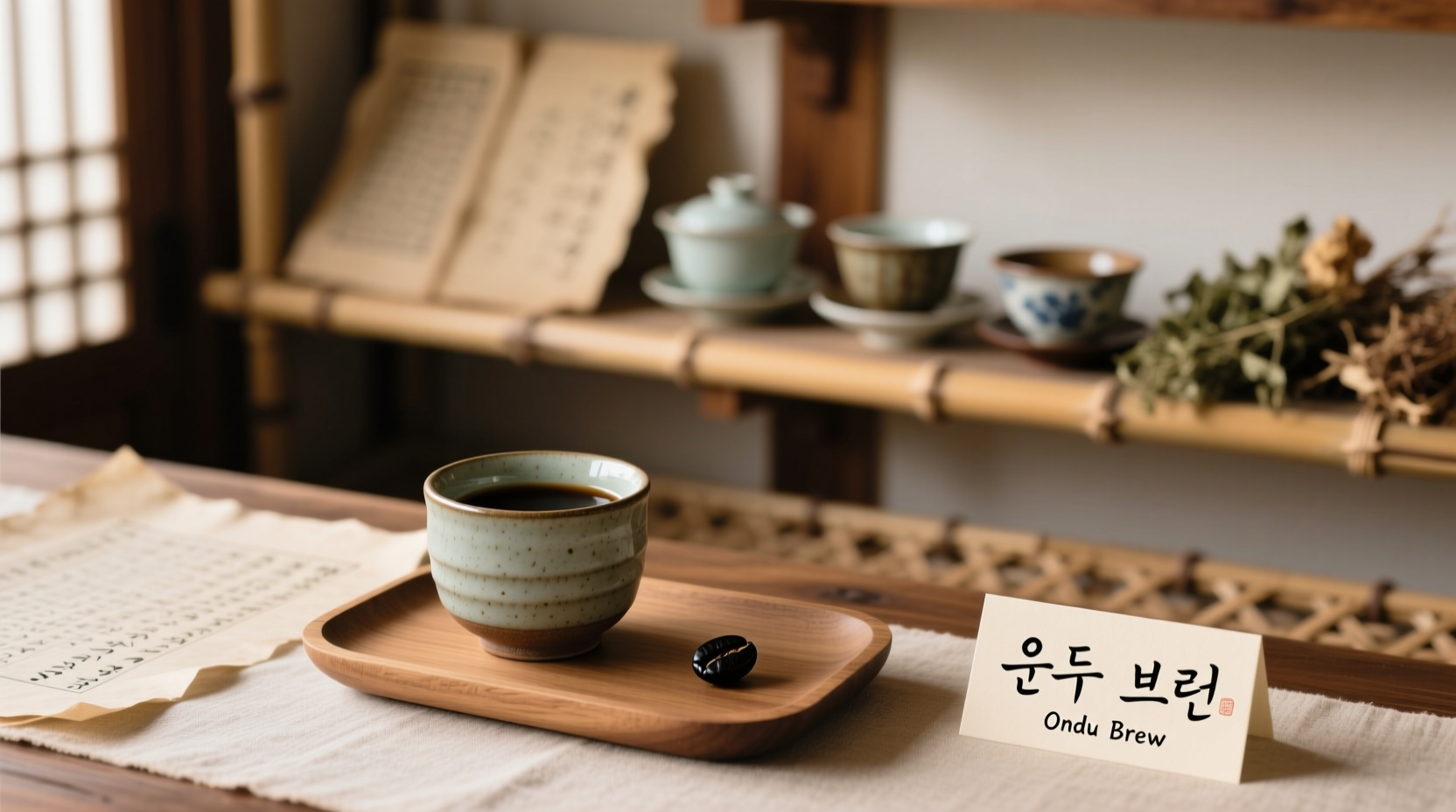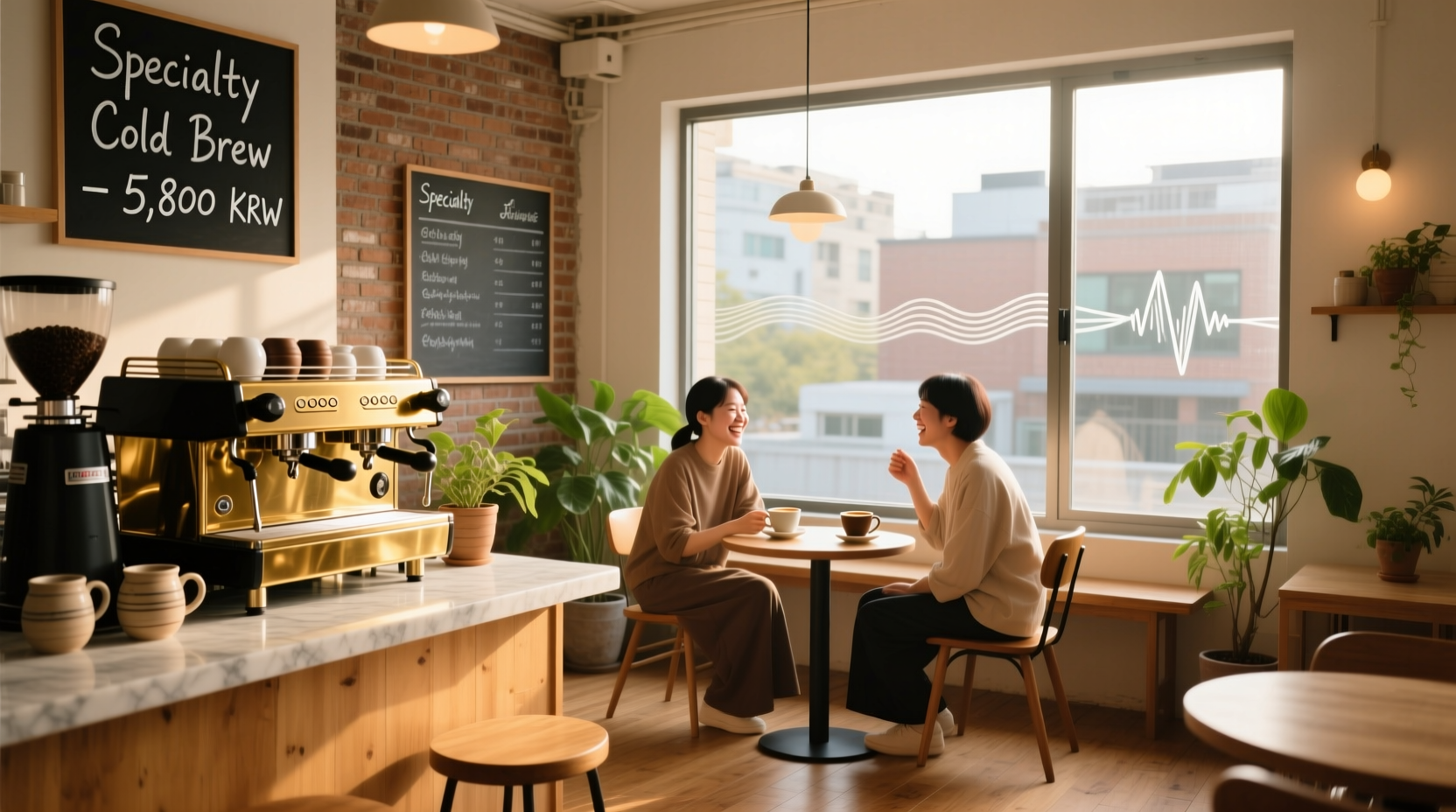Why Cafe Onion Anguk Stands Out in Seoul's Coffee Scene
While Seoul boasts over 25,000 coffee shops, Cafe Onion Anguk has carved a distinctive niche by blending traditional Korean ingredients with specialty coffee craftsmanship. Unlike typical Seoul cafes that focus solely on Western-style coffee, this establishment incorporates native Korean flavors into their brewing process, creating a bridge between Korea's rich tea culture and modern coffee trends.
According to Seoul Metropolitan Government's 2024 cultural tourism report, Anguk-dong has seen a 37% increase in specialty cafes incorporating traditional elements over the past three years, reflecting a growing trend of "hanok cafes" that preserve Korean architectural heritage while serving contemporary beverages.
| Feature | Cafe Onion Anguk | Average Seoul Cafe |
|---|---|---|
| Building Type | Restored hanok (traditional Korean house) | Modern commercial space |
| Signature Beverages | Korean ingredient-focused (omija, bori, persimmon) | Standard espresso drinks |
| Seating Capacity | 28 guests | 45-60 guests |
| Average Wait Time | 15-25 minutes during peak hours | 5-15 minutes |
Your Complete Visit Planning Guide
Location & Neighborhood Context
Situated at 32 Samcheong-ro 7-gil in Jongno-gu, Cafe Onion Anguk occupies a prime position in Seoul's cultural corridor. The cafe's strategic location places it within walking distance of major attractions:
- 8 minutes to Gyeongbokgung Palace's Heungnyemun Gate
- 5 minutes to the traditional Bukchon Hanok Village
- 12 minutes to the National Folk Museum of Korea
This positioning makes Cafe Onion Anguk an ideal refreshment stop during cultural tours of Seoul's historic center. The cafe deliberately chose this location to serve both international tourists exploring Korea's royal heritage and local Seoul residents seeking authentic cultural experiences.
Menu Highlights You Shouldn't Miss
Cafe Onion Anguk's menu changes seasonally to reflect Korea's agricultural calendar, with offerings that showcase regional ingredients:
- Omija Honey Latte (8,500 KRW) - Made with schisandra berries from Jirisan National Park
- Bori Coffee (7,800 KRW) - Barley-infused cold brew with traditional Korean notes
- Persimmon Mocha (9,200 KRW) - Autumn specialty using dried Korean persimmons
- Yuzu Ade (7,500 KRW) - Refreshing citrus drink popular in summer months
Each beverage comes with a small explanation card detailing the Korean ingredient's historical significance. The cafe partners with small-scale Korean farmers through the Ministry of Agriculture's "Local Ingredient Sourcing" program, ensuring authenticity and supporting regional producers.

Atmosphere & Design Elements
The cafe occupies a carefully restored 1930s hanok that maintains traditional Korean architectural elements while accommodating modern cafe functionality. Key features include:
- Ondol (traditional underfloor heating) in winter months
- Maru (wooden porch) seating area for warmer seasons
- Traditional Korean paper (hanji) lanterns throughout the space
- Antique Korean ceramic ware used for serving
Unlike many "themed" cafes in Seoul, Cafe Onion Anguk's design reflects genuine Korean aesthetic principles rather than superficial decoration. The space follows the Korean concept of "madang" (courtyard), creating a natural flow between interior and exterior spaces that encourages relaxation and contemplation.
Practical Visit Information
Operating Hours & Best Times to Visit
Cafe Onion Anguk maintains consistent hours year-round:
- Weekdays: 9:00 AM - 7:00 PM (last order at 6:30 PM)
- Weekends: 9:30 AM - 8:00 PM (last order at 7:30 PM)
- Closed: Tuesdays for maintenance and ingredient restocking
Based on visitor pattern analysis from Seoul Tourism Organization data, the optimal times for a relaxed experience are:
- Weekday mornings (9:00-11:00 AM) - Fewest visitors
- Weekday afternoons (2:00-4:00 PM) - Moderate crowds
- Weekend mornings (9:30-11:30 AM) - Popular with locals
The cafe does not accept reservations for parties under six people, operating on a first-come, first-served basis. During peak tourist seasons (March-May and September-November), expect 15-25 minute waits during midday hours.
Getting There: Detailed Transportation Options
Multiple transportation options serve Cafe Onion Anguk's location:
- Subway: Anguk Station (Line 3), Exit 2, then 10-minute walk through Bukchon Village
- Bus: Routes 1020, 1711, or 7022 to "Gyeongbokgung Palace" stop, 7-minute walk
- Walking: From Gyeongbokgung Palace's main gate, follow the palace wall east for 15 minutes
Visitors using navigation apps should search for "카페 어니언 안국" as the official English name may not appear correctly on all mapping services. The cafe's subtle exterior (consistent with traditional hanok aesthetics) means it's easy to miss - look for the small copper onion sign near the wooden gate.
Planning Your Cultural Experience
Cafe Onion Anguk functions as more than just a coffee stop - it serves as a cultural gateway to understanding Korean aesthetics and hospitality traditions. The cafe staff often share brief explanations of Korean tea ceremony principles that influence their coffee service approach.
For visitors planning a full cultural experience, consider this itinerary:
- 9:00 AM: Gyeongbokgung Palace tour (opens at 9:00)
- 11:30 AM: Visit to National Folk Museum
- 1:00 PM: Lunch at traditional Korean restaurant in Samcheong-dong
- 2:30 PM: Coffee break at Cafe Onion Anguk
- 3:30 PM: Explore Bukchon Hanok Village
This sequence follows the traditional Korean concept of "sikdanhang" (food-coffee-walk), optimizing the cultural experience while allowing natural breaks between activities.
Visitor Considerations & Limitations
While Cafe Onion Anguk offers a unique experience, certain limitations exist that visitors should understand:
- Space constraints: The traditional hanok layout means limited wheelchair accessibility
- Menu limitations: Few non-caffeinated options beyond traditional Korean teas
- Language barrier: Staff have basic English proficiency but limited conversation ability
- Payment options: Primarily cash (KRW) with limited card acceptance
These limitations reflect the cafe's commitment to authenticity rather than commercial convenience. Visitors seeking a purely Western-style coffee experience may find the traditional elements challenging, but those embracing the cultural context typically report higher satisfaction.











 浙公网安备
33010002000092号
浙公网安备
33010002000092号 浙B2-20120091-4
浙B2-20120091-4